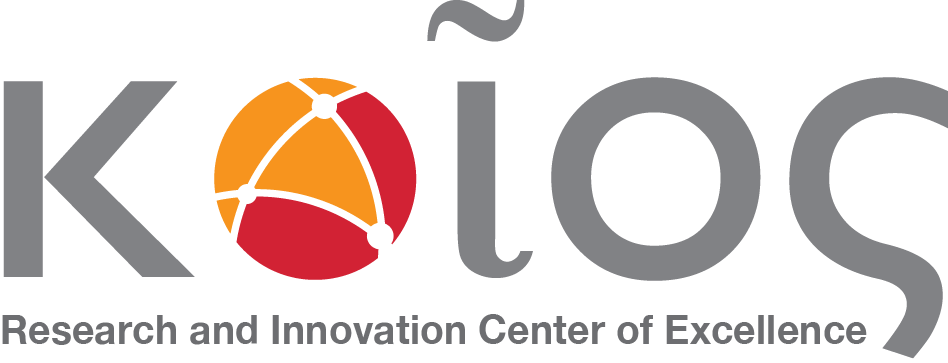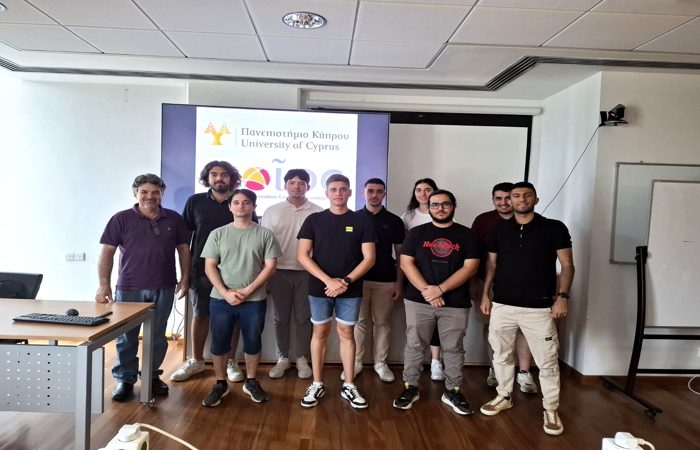The summer of 2024 has been an exciting and productive period at the KIOS Center of Excellence, as nine exceptional undergraduate students spent 8 weeks working on innovative research projects, alongside leading researchers in a variety of research areas, within the context of the Undergraduate Research Opportunities Program (UROP).
The UROP program is KIOS’ initiative to offer undergraduate students the chance to gain hands-on research experience on projects and make significant advances in science and engineering. This year’s students came from diverse academic backgrounds, including electrical engineering, computer science, mathematics and statistics, and artificial intelligence. Each student was paired with a mentor from the KIOS research team, working on projects aligned with their interests and the Center’s research priorities.
After completing the program, the students shared their personal perspectives about their motivations for joining UROP, the skills and experiences gained, and how this program influenced their future career pathways.
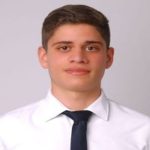 Leontios Ioannou, a 2nd year Computer Science student at the University of Cyprus, joined the UROP Program to gain hands-on experience in conducting research, which he felt was essential for his academic and professional growth. “It also seemed like an excellent opportunity for my first internship, offering a chance to explore the research field in a structured and supportive environment“, he added.
Leontios Ioannou, a 2nd year Computer Science student at the University of Cyprus, joined the UROP Program to gain hands-on experience in conducting research, which he felt was essential for his academic and professional growth. “It also seemed like an excellent opportunity for my first internship, offering a chance to explore the research field in a structured and supportive environment“, he added.
Leontios worked on a research project related to real-time monitoring of water distribution systems. During the internship, he learned MATLAB, which was crucial for data analysis in the project. Additionally, he experienced what it is like to be part of a team in a professional research setting. According to Leontios, “This experience has inspired me to consider a career in research, where I can continue to explore and contribute to solving complex problems”.
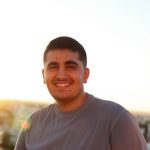 Marios Bou Mansour, a 2nd year Electrical and Computer Engineering student at the University of Cyprus, was involved in a project related to colorectal polyp classification using optical coherence tomography (OCT) Images. Throughout this internship, Marios significantly improved his MATLAB skills and gained hands-on experience with machine learning algorithms, learning how to apply them effectively in a real-world setting. As Marios said, “this program has been transformative for me, opening up the possibility of pursuing research as a career path. It has ignited my interest in exploring further opportunities in this field“.
Marios Bou Mansour, a 2nd year Electrical and Computer Engineering student at the University of Cyprus, was involved in a project related to colorectal polyp classification using optical coherence tomography (OCT) Images. Throughout this internship, Marios significantly improved his MATLAB skills and gained hands-on experience with machine learning algorithms, learning how to apply them effectively in a real-world setting. As Marios said, “this program has been transformative for me, opening up the possibility of pursuing research as a career path. It has ignited my interest in exploring further opportunities in this field“.
 Marios Papadopoulos, a 2nd year Mathematics and Statistics student at the University of Cyprus, joined UROP because he wanted to be a part of a research team and gain valuable skills such as collaboration with other people, discipline, etc. Marios was interested in the field of intelligent transportation systems (ITS) and his work was focused on the calibration of an intelligent driver model using optimization-based techniques. “Throughout this program, I met new people and made new friends. I improved skills such as creativity, broadened my research horizons and cultivated critical thinking”, he commented.
Marios Papadopoulos, a 2nd year Mathematics and Statistics student at the University of Cyprus, joined UROP because he wanted to be a part of a research team and gain valuable skills such as collaboration with other people, discipline, etc. Marios was interested in the field of intelligent transportation systems (ITS) and his work was focused on the calibration of an intelligent driver model using optimization-based techniques. “Throughout this program, I met new people and made new friends. I improved skills such as creativity, broadened my research horizons and cultivated critical thinking”, he commented.
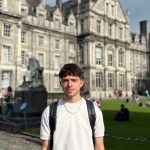 Grigoris Ioannis Manitaras, a 2nd year Computer Science student at Trinity College Dublin, applied to UROP not only because it was recommended to him by previous UROP interns, but also because of the interesting research areas that could give him exposure at the beginning of his career. Additionally, he wanted to experience what it is like working on a personal research project while being guided by experts in the field.
Grigoris Ioannis Manitaras, a 2nd year Computer Science student at Trinity College Dublin, applied to UROP not only because it was recommended to him by previous UROP interns, but also because of the interesting research areas that could give him exposure at the beginning of his career. Additionally, he wanted to experience what it is like working on a personal research project while being guided by experts in the field.
Grigoris conducted research in the area of intelligent transportation systems and his project concerned dynamic user assignment and bus routing for on-demand park-and-ride systems. “This program has provided me with invaluable experience in research proposal and execution, including skills in optimization, software development, mathematical model formulation, and problem solving“, he said.
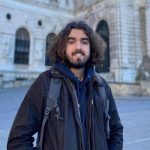 Antonis Georgiou, a 3rd year Mathematics and Statistics student at the University of Cyprus, was informed about UROP from a friend who had participated last year and recommended it to him. During his internship, he worked on machine learning applications for power systems. Commenting on his experience, he said: “I learned many things about machine learning and programming. Additionally, I gained experience in what it is like to be part of a research team and to understand the process of conducting research. Lastly, as it was my first job, I gained valuable insight into what it is like to be employed”.
Antonis Georgiou, a 3rd year Mathematics and Statistics student at the University of Cyprus, was informed about UROP from a friend who had participated last year and recommended it to him. During his internship, he worked on machine learning applications for power systems. Commenting on his experience, he said: “I learned many things about machine learning and programming. Additionally, I gained experience in what it is like to be part of a research team and to understand the process of conducting research. Lastly, as it was my first job, I gained valuable insight into what it is like to be employed”.
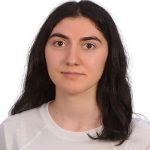 Stanimira Georgieva, a 2nd year Computer Science/Mathematics and Statistics student at the University of Cyprus, was involved in a project related to deep learning. She said: “Throughout this program, I gained a deep understanding of research methodology, how to manage large datasets, compare results, and enhance problem-solving skills“. Referring to her overall UROP experience, she said that the program has influenced her positively, as she considers pursuing a research career in the future.
Stanimira Georgieva, a 2nd year Computer Science/Mathematics and Statistics student at the University of Cyprus, was involved in a project related to deep learning. She said: “Throughout this program, I gained a deep understanding of research methodology, how to manage large datasets, compare results, and enhance problem-solving skills“. Referring to her overall UROP experience, she said that the program has influenced her positively, as she considers pursuing a research career in the future.
 Nicolas Assiotis, a 2nd year Artificial Intelligence student at the University of Groningen, decided to apply to UROP because he wanted to apply his knowledge in artificial intelligence to real-world medical challenges. “The opportunity to contribute to innovative research in healthcare, particularly in improving diagnostic tools through machine learning, was highly motivating“, he said. His project was related to deep learning for detection of malignant potential during colorectal screening with optical coherence tomography. According to Nicolas, he gained essential skills in machine learning and image analysis, specifically applied to medical imaging. “I learned to develop, train, and fine-tune deep learning models, manage and preprocess datasets, and interpret the results of these models. I also enhanced my programming skills in Python, gained experience with libraries such as TensorFlow and PyTorch, and improved my ability to work in a collaborative research setting. These experiences have been invaluable in bridging the gap between theoretical knowledge and practical application”, he added.
Nicolas Assiotis, a 2nd year Artificial Intelligence student at the University of Groningen, decided to apply to UROP because he wanted to apply his knowledge in artificial intelligence to real-world medical challenges. “The opportunity to contribute to innovative research in healthcare, particularly in improving diagnostic tools through machine learning, was highly motivating“, he said. His project was related to deep learning for detection of malignant potential during colorectal screening with optical coherence tomography. According to Nicolas, he gained essential skills in machine learning and image analysis, specifically applied to medical imaging. “I learned to develop, train, and fine-tune deep learning models, manage and preprocess datasets, and interpret the results of these models. I also enhanced my programming skills in Python, gained experience with libraries such as TensorFlow and PyTorch, and improved my ability to work in a collaborative research setting. These experiences have been invaluable in bridging the gap between theoretical knowledge and practical application”, he added.
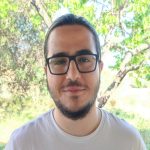 Loucas Konstantinou, a 2nd year Electrical and Computer Engineering student at the University of Cyprus, decided to apply to UROP because he wanted to gain hands-on research experience and work alongside experts in research. “The opportunity to contribute to cutting-edge projects at KIOS CoE was a major motivation for me, as it is aligned with my academic interests and career goals”, he says. Loucas was involved in the development of code that allows drones to autonomously deliver medical supplies. Regarding the skills and experience gained, Loucas said that throughout this program he developed strong problem-solving skills, particularly in the context of algorithm development. Also, he gained valuable experience in collaborative research, learning how to effectively communicate and work within a team of researchers.
Loucas Konstantinou, a 2nd year Electrical and Computer Engineering student at the University of Cyprus, decided to apply to UROP because he wanted to gain hands-on research experience and work alongside experts in research. “The opportunity to contribute to cutting-edge projects at KIOS CoE was a major motivation for me, as it is aligned with my academic interests and career goals”, he says. Loucas was involved in the development of code that allows drones to autonomously deliver medical supplies. Regarding the skills and experience gained, Loucas said that throughout this program he developed strong problem-solving skills, particularly in the context of algorithm development. Also, he gained valuable experience in collaborative research, learning how to effectively communicate and work within a team of researchers.
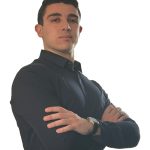 Panayiotis Demetriou, a 2nd year Computer Science student at the University of Cyprus, joined UROP to deepen his research skills and tackle challenging projects. He worked on a project related to Telecommunication Systems and Next Generation Networks. According to Panayiotis, during the internship, he developed Python scripts, worked with databases, created a GUI, and utilized Docker containers, which significantly enhanced his technical expertise. “This experience not only improved my problem-solving and project management skills, but also solidified my interest in cybersecurity, an area I found both new and appealing. As a result, I am considering pursuing a career in cybersecurity, with a newfound enthusiasm for exploring its complexities and innovations”, he added.
Panayiotis Demetriou, a 2nd year Computer Science student at the University of Cyprus, joined UROP to deepen his research skills and tackle challenging projects. He worked on a project related to Telecommunication Systems and Next Generation Networks. According to Panayiotis, during the internship, he developed Python scripts, worked with databases, created a GUI, and utilized Docker containers, which significantly enhanced his technical expertise. “This experience not only improved my problem-solving and project management skills, but also solidified my interest in cybersecurity, an area I found both new and appealing. As a result, I am considering pursuing a career in cybersecurity, with a newfound enthusiasm for exploring its complexities and innovations”, he added.
The UROP program has been running at KIOS for the last 15 years, giving the opportunity to more than 90 undergraduate students to engage in research and innovation. This program not only empowers each student’s academic journey, but also contributes meaningfully to the KIOS CoE mission in training and educating the next generation of researchers.
